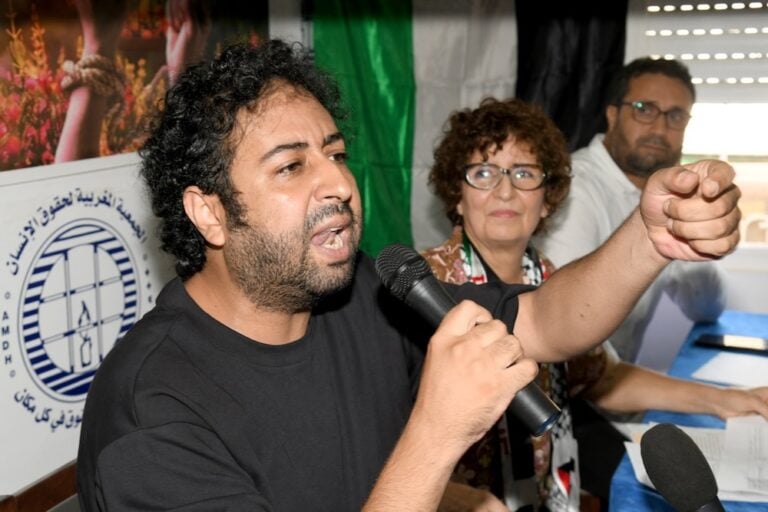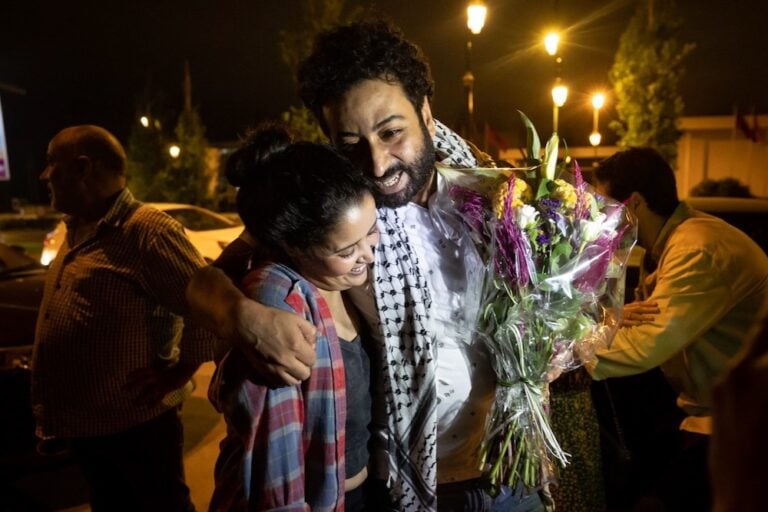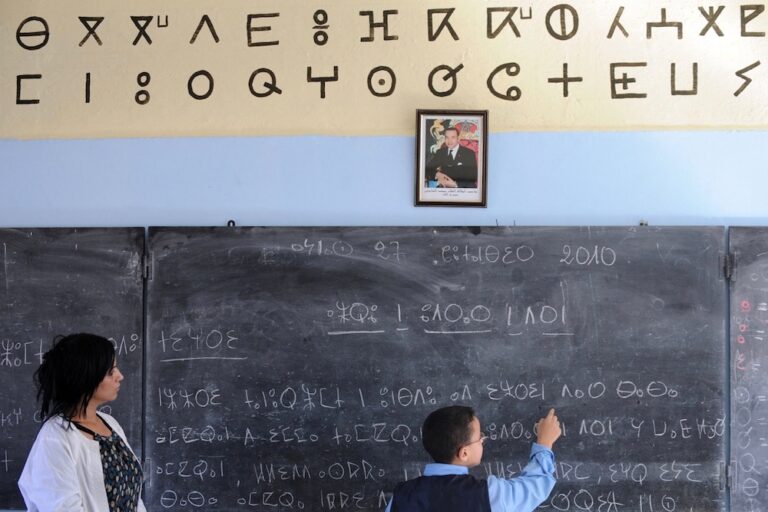Since Moroccans began demonstrating in February to demand major political reforms, police have responded on several occasions with extreme brutality.
(Human Rights Watch/IFEX) – Rabat, July 11, 2011 – The constitutional revisions approved in the July 1, 2011 referendum can significantly advance Moroccans’ rights, but only if authorities use these new constitutional principles to reform repressive laws and practices, Human Rights Watch said today.
Among the practices that need to be brought into line with the constitution is the police response to peaceful protest, Human Rights Watch said. Since Moroccans began demonstrating in the streets on February 20 to demand major political reforms, inspired by the protest movements sweeping the Arab world, the police have responded on several occasions with extreme brutality. They have beaten peaceful protesters to the point where scores required medical care such as stitches and treatment of broken bones. At least one died in the hospital after being beaten, although the cause of death remains unclear.
“The real test of the Moroccan government’s commitment to human rights is in whether it respects its citizens’ rights in practice,” said Sarah Leah Whitson, Middle East and North Africa director at Human Rights Watch. “It’s not enough to adopt a constitution that affirms, ‘No one may harm the physical or moral integrity of another in any circumstance’ and then allow the police to club peaceful demonstrators.”
The constitutional reforms include several provisions that reinforce citizens’ rights, including gender equality, freedom of expression “in all its forms,” freedom of association, assembly and peaceful protest, the right to a fair trial, and the criminalization of torture, arbitrary detention, and forced disappearance. The constitution precludes press censorship. It requires the authorities to tell anyone they detain “immediately” of the reasons and of their rights. The amendments also grant powers to the prime minister that previously were exclusively the king’s.
Among the many Moroccan laws that need to be brought into line with the new constitution’s sweeping affirmation of these principles are provisions of the press code and penal code that provide prison terms for expression, Human Rights Watch said. These include speech or writing that “defames” public officials or state institutions under articles 45 and 46 of the press code or that “brings harm to” Islam, the monarchy, or Morocco’s sovereignty claim over Western Sahara, under article 41.
The organizers of most of the demonstrations in recent months are from the February 20 Movement for Change, a loosely knit and mostly youth-based group inspired by the uprisings in Egypt and Tunisia. The group’s slogans focus on freedom and democracy, and an end to corruption and repression. At times they have made more specific calls, such as to vastly curtail the king’s powers and prerogatives and to free political prisoners. The powerful Islamist movement Justice and Spirituality, the far-left small party the Democratic Path, and the Moroccan Association for Human Rights, among others, have endorsed the February 20 Movement’s goals.
On several occasions, including during much of June, authorities did not interfere with demonstrations the movement had organized in major cities. But on several other occasions since February, security forces in Rabat, Casablanca, and elsewhere assaulted demonstrators.
Human Rights Watch interviewed protesters in Rabat, Casablanca, and Kénitra who were beaten. They said that security forces assaulted protesters as they were gathering, with no warning, charging them with batons and striking them on their bodies and, in some cases, their heads. In other instances, as protesters were dispersing, security forces pursued protesters down side streets to continue beating them.
The beatings they described would appear designed to mete out summary punishment. Their numerous and consistent accounts contradict official claims that the security forces used only the force necessary to disperse “unauthorized” gatherings, or to disperse people who blocked traffic or disobeyed orders.
There is no obvious explanation for the government’s vacillation between allowing peaceful demonstrations on some days and, on other days, violently repressing peaceful demonstrations that were organized under the same slogans, Human Rights Watch said.
The independent Moroccan Association for Human Rights says that it has documented over 100 cases of injuries to protesters inflicted by the security forces between February and the end of May. To the best of Human Rights Watch’s knowledge, no member of the security forces has been prosecuted for using violence unjustifiably against protesters.
Some of the harshest police violence occurred at peaceful protests on May 15, 22, 28, and 29. Human Rights Watch interviewed numerous people who tried to take part in those demonstrations and in earlier ones where police beat protesters.
( . . . )
Click here for further details and protesters’ accounts of police violence


